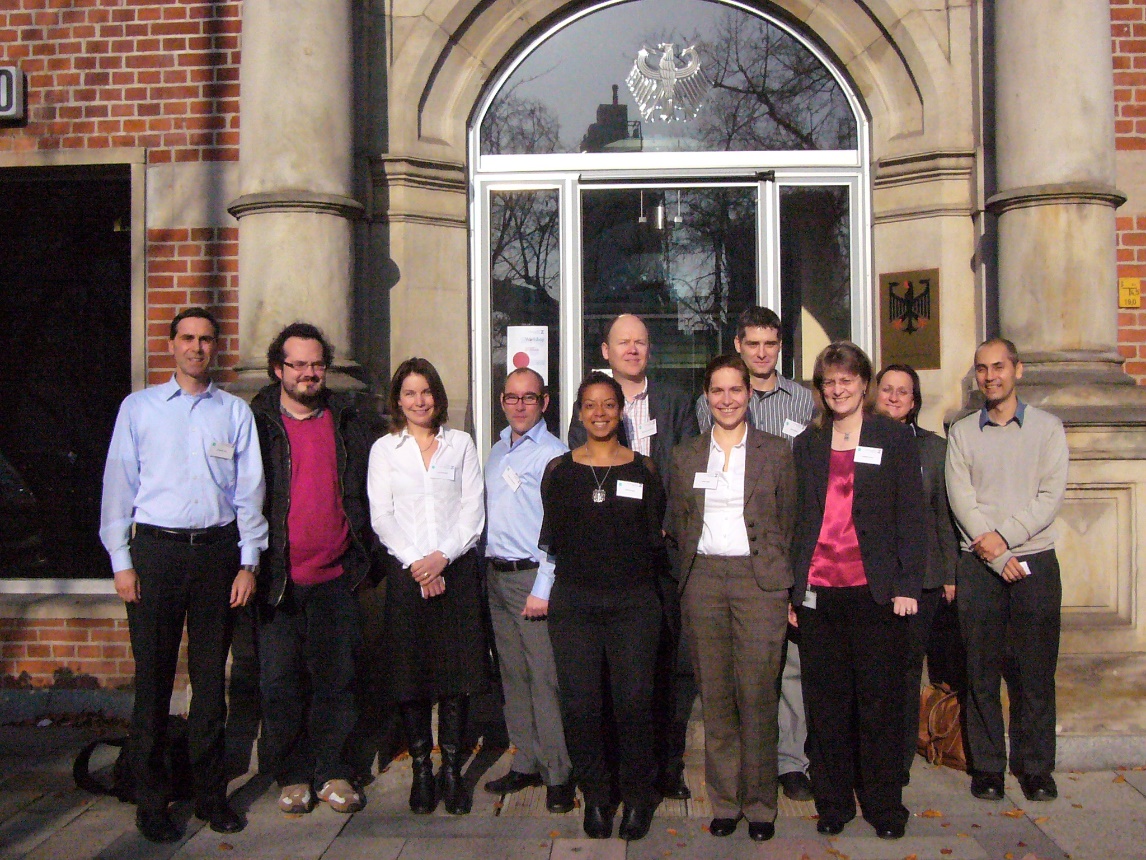The National Research Platform for Zoonoses organised the workshop "Bead-based Array Technologies" in Berlin on 7 November 2011 together with the Robert Koch Institute (RKI). The aim of the event was to present and discuss the current status and the various applications of this technology in the field of zoonotic infectious diseases. More than 50 participants from research, clinic and industry attended the event and discussed the latest research results, which were demonstrated by numerous application examples.
Bead-based array technologies as an important tool in zoonoses research
The Vice President of the RKI, PD Dr. Lars Schaade, welcomed the participants and pointed out the special importance of bead-based array technology in the research and control of zoonotic infectious diseases. Afterwards, Dr. Brigitte Dorner - the initiator and scientific director of the event - introduced the topic.
The first part of the event was dedicated to the use of bead-based array technologies in the analysis of nucleic acids. Practical application options from research and clinic were presented by Dr. Neil LeBlanc (The National Veterinary Institute, Uppsala), Dr. Indra Bergval (Royal Tropical Institute, Amsterdam), Dr. Stefan Erkeland (Erasmus University Medical Center, Rotterdam), John Ramble (St.Thomas' Hospital, London) and PD Dr. Oliver Schildgen (Clinics of the City of Cologne). In all contributions the great advantages of bead-based array technologies were shown: the identification of several target molecules in one experimental approach, time savings compared to conventional examination methods as well as validity of the methodology which allows the use in routine diagnostics.
The second part of the workshop focused on the application of bead-based array technologies for the identification of proteins. Dr. Lucy Fairclough (University of Nottingham) provided impressive comparative data on the detection of cytokines using different measurement devices. Dr. Fimme Jan van der Wal (Central Veterinary Institute, Lelystad) showed how bead-based array technology can be used to analyze microbial pathogens in high-throughput applications. The use of autoimmune antibodies as biomarkers - and thus the possibility of "autoimmune profiling" was described by Dr. Heike Göhler from Protagen. Prof. Edwin Donath (University of Leipzig) and Prof. Matthias Mack (Mannheim University of Applied Sciences) presented further technical developments in the field of technology; they gave an outlook on the further development of the technology. Dr. Diana Pauly (Robert Koch Institute, Berlin) concluded the workshop by demonstrating that the bead-based array technology is excellently suited for the detection of human pathogenic, complex botulinum neurotoxins (BoNT).
Development of new fields of application through interdisciplinary cooperation
The event ended with a visit to the Robert Koch Museum in the late afternoon.
In summary, the workshop offered the opportunity to present the progress in the field of bead-based array technology with renowned European experts and thus reflect the current state of knowledge. The intensive discussions on the presentations showed that the event provided a multitude of new ideas for future research projects. By intensifying the interdisciplinary cooperation between the represented working groups, the further development and the development of new fields of application for the innovative technology are possible. These methodological advancements contribute to a deeper understanding in the prevention and control of zoonotic infectious diseases.

Speakers at the workshop in Berlin; from left to right: Prof. Matthias Mack, PD Dr. Oliver Schildgen, Dr. Lucy Fairclough, Dr. Stefan Erkeland, Dr. Indra Bergval, Dr. Fimme Jan van der Wal, Dr. Diana Pauly, Dr. Neil LeBlanc, Dr. Brigitte Dorner, Dr. Heike Göhler, John Ramble
With the support of





